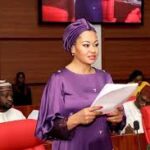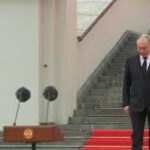The Central Bank of Nigeria (CBN) has opted to maintain all key monetary policy parameters at current levels, citing signs of macroeconomic stability and a declining inflation trend.
Following its 300th Monetary Policy Committee (MPC) meeting held Tuesday in Abuja, the apex bank announced it would retain the Monetary Policy Rate (MPR) at 27.5 percent, alongside the asymmetric corridor at +500/-100 basis points. The Cash Reserve Ratio (CRR) also remains unchanged at 50 percent for Deposit Money Banks and 16 percent for Merchant Banks, while the Liquidity Ratio stays at 30 percent.
CBN Governor Olayemi Cardoso, who briefed journalists after the meeting, said the committee’s decision was unanimous, driven by improved macroeconomic indicators and cautious optimism about price moderation in the near term.
He highlighted positive developments such as a narrowing gap between the official and parallel foreign exchange markets, a stronger balance of payments position, and declining petrol prices. Cardoso also commended the federal government’s efforts to boost food supply and tackle insecurity in agricultural regions.
According to data from the National Bureau of Statistics (NBS), headline inflation dropped to 23.71 percent in April 2025 from 24.23 percent in March. Month-on-month inflation also declined to 1.86 percent from 3.9 percent. Both food and core inflation saw improvements, with food inflation easing to 21.26 percent and core inflation declining to 23.39 percent.
Despite these gains, Cardoso acknowledged ongoing inflationary pressures driven by high electricity tariffs, forex demand, and structural issues. He assured that the federal government is introducing policies to increase local production and reduce reliance on foreign currencies.
The MPC encouraged the CBN to sustain ongoing reforms in the foreign exchange market to strengthen investor confidence. It also called on fiscal authorities to boost foreign exchange earnings, especially through oil, gas, and non-oil exports.
However, the committee expressed concern over recent declines in crude oil prices, driven by increased non-OPEC output and uncertainty in U.S. trade policy—factors that could impact Nigeria’s fiscal revenues.
On the banking sector, Cardoso reaffirmed the system’s stability, citing improved performance indicators and progress in the ongoing recapitalisation process. He said the CBN would continue its oversight role to ensure regulatory compliance and financial health.
Explaining the MPC’s decision to hold rates, Cardoso said the committee preferred to observe evolving economic trends more closely before adjusting policy. He reiterated the CBN’s focus on anchoring inflation expectations and stabilising the exchange rate.
As of May 16, 2025, Nigeria’s gross external reserves had risen by 2.85 percent to $38.90 billion, providing an import cover of 7.6 months. The Balance of Payments recorded a surplus of $1.10 billion in Q4 2024, down from $4.21 billion in the previous quarter.
On global trends, Cardoso noted the International Monetary Fund’s (IMF) downgrade of global growth forecasts to 2.8 percent in 2025 and 3.0 percent in 2026, compared with 3.3 percent in 2024, due to persistent global uncertainties.
Responding to public concerns about the slow impact of economic reforms, Cardoso expressed confidence that recent policy actions would yield more tangible results with time. He pointed to Fitch’s recent upgrade of Nigeria’s credit rating as a strong signal of economic recovery and investor confidence.
“Investors go where there is stability,” Cardoso said. “Stability breeds confidence, and confidence attracts investment, which drives growth. That’s the path we are now on.”
He further highlighted the significant reduction in exchange rate volatility—down from over four percent a year ago to less than 0.5 percent—describing it as a sign of growing macroeconomic stability.
Addressing the naira’s depreciation amid global tensions, Cardoso said CBN’s early interventions helped prevent a worse outcome. “If those actions hadn’t been taken when they were, the impact would have been more severe,” he said. “Compared to other economies, Nigeria has managed the situation commendably.
Edited by Nzubechukwu Eze









